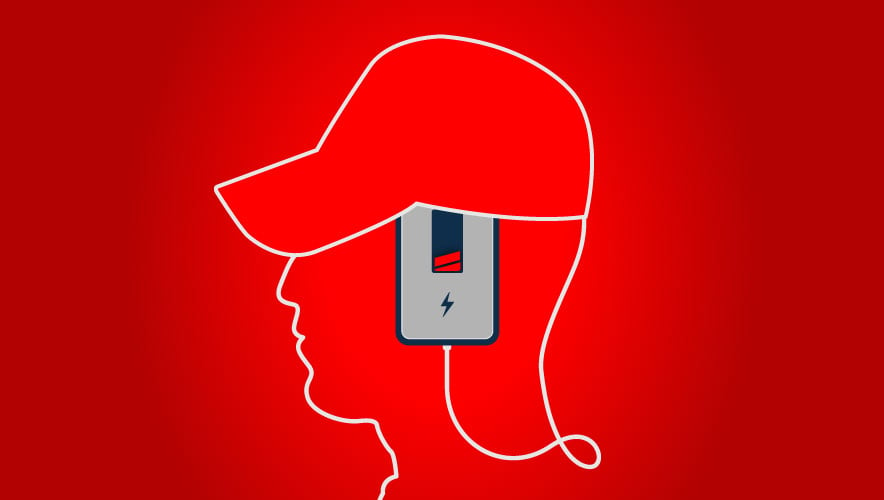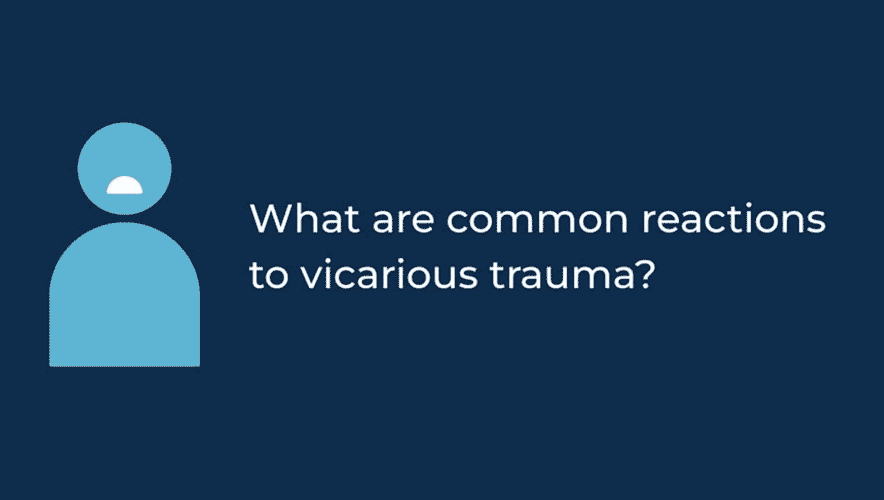6 Ways Managers Can Prioritize Security Officer Mental Health
Security officers, guards, and first responders—along with global security operations center (GSOC) specialists—are on the front lines of incident response, often bearing witness to disturbing images, videos, or situations. These individuals must be prepared and ready to act at a moment’s notice during an emergency, which means many of them may require additional support in the form of mental health resources and focus.
“It’s no secret that while uneventful a majority of the time, this profession has the potential to impact one's mental health,” says Cheyne White, director of vGSOC operations at HiveWatch. “If my team is not as healthy as they can be—mentally, physically, emotionally—then how can they be expected to handle the worst that may occur at any given time?”
In a 2021 study conducted by the University of Portsmouth, 40 percent of security workers were suffering from post-traumatic stress disorder (PTSD) or other mental health illnesses. Witnessing disturbing events in a GSOC environment or in the field can have lasting impacts, according to Jenna Orosco, a licensed therapist at Colorado-based Resolve Counseling, LLC.
“Some people get through trauma on their own, but many people need help processing it,” she says. Orosco, who has more than 15 years of experience—many of which were spent working with incarcerated people and corrections officers—notes that broaching the topic can be tricky in these environments, but it’s important to take it seriously when you’re managing a team of security officers or first responders.
“Supervisors need to be aware and sensitive to the fact that traumatic events will affect individuals differently and might need varied approaches to ensure responders are taken care of effectively,” Orosco says.
Here are six ways that managers can help support their teams:
Watch for Signs of Stress or Burnout
Orosco says that one sign of burnout in a field—especially a caring field—is a lack of empathy. “Typically, when something traumatic happens, there’s an emotional reaction that occurs,” she says. “When there isn’t the same emotional reaction to events, that can be an indicator of a bigger issue.”
Other symptoms include hypervigilance, being rigid about processes, or doing things a certain way. “This can be complicated in a security setting because it can be mistaken for caution,” Orosco says. But she notes if it’s taking on an extra edge of inflexibility or anger outbursts, extra controlling, or a lack of emotional connection, that can be a sign of trauma.
Stress and burnout can also take on physical symptoms, which can build up in the body and cause headaches, pain, and stomach issues, along with lack of sleep, which can exacerbate all of these issues.
“Withdrawing, calling in sick a lot without a lot of reasons, being late to work, or if they seem like they don’t want to be there, there’s a reason for it,” Orosco says.
Understand Where Your Officers Are Coming From
Sometimes issues in one’s personal life—such as a loss or divorce—can make job stressors even harder and can lead to challenges dealing with additional work-related issues.
“As a leader, it’s important to be more compassionate about the full human, and not just the employee,” Orosco says.
Allow Time for Breaks and Resets
Sitting in a GSOC for long shifts can weigh heavily on the mental health of security officers and may lead to attrition, so it’s important for supervisors to make space for regular breaks and time off.
“My number one concern is the wellbeing of my operators and supervisors,” White says. “It is because of that, that I encourage breaks whenever possible, the use of both paid time off and sick time, and our open door policy to be used with me at all hours.”
Supervisors should also consider implementing an opportunity for security officers to take time off following a traumatic event to decompress and seek additional counseling help.
Prioritize Engagement
For managers, engagement is an important part of supporting the mental health of employees. According to Orosco, when a traumatic incident occurs, leaders should prioritize having counseling services available, debriefing as a team and individually, and talking about it right away.
“Most of the time, first responders, officers, or security officers feel like they have to keep it together and move onto the next crisis,” Orosco says. “But management needs to prioritize pulling an individual out of the room, have them walk you through what happened, and ask how they’re feeling at that moment. Ask what they need, offer support, be inquisitive. Some people think they don’t want to make it worse, but in my experience, it’s the other way around. Support means following up and checking in and making sure you’re engaged.”
Foster a Respectful Environment
When leaders recognize a big dissatisfaction in the ranks or hostility in the workplace, it’s crucial to address the situation immediately.
“Creating an environment that is decent, respectful, and transparent can go a long way in curbing dissatisfaction levels for officers,” Orosco says. “When it’s not addressed, employees will feel a lack of support, may withdraw, and in the case of security operators, this can lead to an unsafe environment.”
Advocate for Additional Resources
“Putting mental health first means talking the talk and walking the walk,” Orosco says. Make sure you know where counseling services are available and have that ready when an incident occurs. Ask employers to pay for meditation apps, which have been shown to help cope with stress by refocusing attention on something calming. Formulate best practices for post-incident response and debriefing time to ensure security officers understand what to do immediately following.
What Security Officers Can Do
Orosco also offers some tips for security officers on ways to prioritize their mental health:
- Do something physical—especially after a stressful event. Yoga, mediation, exercise, crying, or hugging someone you feel safe with can release cortisol, which is a hormone that the body releases to help regulate stress responses.
- Talk to your counselor or locate a support group where you can share experiences and work through trauma.
- Have something outside of work that you’re connected with, whether it’s your faith, family, gardening, a softball team, etc. Having an outlet has a lot of health benefits, and repair can happen through that connection to activities outside of work.
- Try mediation, especially at the end of a stressful shift. Take deep breaths and spend a couple of minutes transitioning into your personal time from work time.
- Focus on what you can control. “You can’t control the organization, but you can control what you talk to your boss about, how you handle the situation, and your response to it,” Orosco says.
Jenna Hardie is senior manager, content and PR, for HiveWatch, a physical security software company reimagining how organizations keep their people and assets safe. Hardie has worked in the physical security, cybersecurity, and high-tech space for the last nine years, driving brand awareness, media relations, marketing, and communications initiatives as part of Compass Integrated Communications and ZAG Technical Services.













